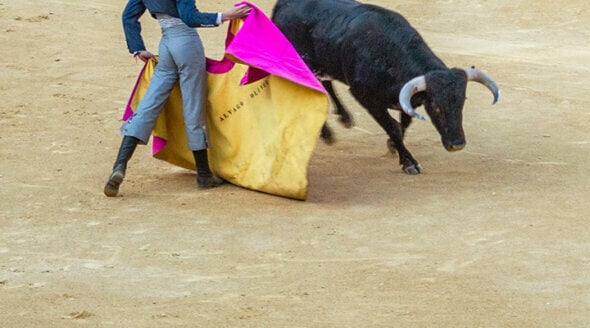PETA Exhibit Reminds Viewers How Human Slavery Mirrors Enslavement Of Animals
For Immediate Release:
30 April 2008
Contact:
Alistair Currie 0207 357 9229, ext 245; 0789 458 7124 (mobile)
Sam Glover 020 7357 9229, ext 229
Oxford – Is it fair to compare painful procedures performed on unwilling human subjects to the experiments that maim and kill millions of animals in British laboratories? Can battery-caged hens be compared to child sweatshop workers and can perpetually chained “performing” bears be prepared to shackled human slaves? These are questions that PETA poses in its challenging new exhibit – the “Animal Liberation Project” – which will be at Oxford’s Wesley Hall under the sponsorship of Voice for Ethical Research at Oxford (VERO), which campaigns for alternatives to animal experimentation at the university.
Date: Thursday, 8 May, 2008
Time: 10 am-7 pm, with a talk by PETA’s Alistair Currie at 5:30 pm
Place: Wesley Memorial Hall, New Inn Hall Street, Oxford OX1 2DH
Launched in 2007 to mark 200 years since Parliament’s ban on the human slave trade, the exhibit is especially relevant to Oxford because of the controversy surrounding animal experimentation at the university and the central position Oxford philosophers played in the development of the original “animal liberation” concept.
The exhibit consists of eight large panels with photos that show the parallels between the oppression of humans and the exploitation of animals, and the exhibit focuses on how present and past societies strive to justify abuse – regardless of the victims’ species. Africans captured and forced into slavery were often compared to animals in an effort to justify their treatment; they were even referred to as “beasts”. The exhibit illustrates that the “might makes right” mentality that was the foundation of human slavery, child labour and the denial of women’s equality is also responsible for factory farming, animal experimentation, cruelty to animals in circuses and other forms of abuse.
“Oxford is at the very centre of the debate on animal experimentation, and we want to expand that debate”, says PETA spokesperson Alistair Currie, who will be giving a public talk about the exhibition. “The whole idea of ‘animal liberation’ originated here at Oxford, and now we’re bringing it home. This exhibition asks the question ‘What is the difference – morally – between lobotomising a man and lobotomising a monkey?'”
The display – with an audio narration by poet, playwright and social justice advocate Benjamin Zephaniah as well as a video interview with him – can be viewed at PETA.org.uk/animalliberation.
For more information on PETA, please visit PETA.org.uk. For more information on VERO, visit www.vero.org.uk.

